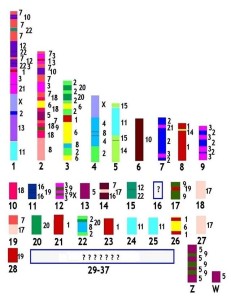Infidelity In Your Genes? Give me a break!

According to a New York Times article (Sunday, May 24, 2015), “Infidelity Lurks in Your Genes.” You’ve got to be kidding, right? This is one of the newest efforts to explain what is going on in our love lives in purely physical terms. The problem is in your body. Or that old and tired argument that people, especially men, are basically animals fighting off the temptation to have intercourse with every available female, you guessed it, in order to spread their genes. Of course this is not something you, guy, will think consciously about. Its just the reason why you have a lousy time committing to love. Bull.
You see the basic problem with this kind of thinking, or explaining is that it takes us away from realizing that how we “behave” in our love lives has everything to do with what we’ve “learned” about love relationships growing up. At a very vulnerable time in our lives we were learning about how to act in a love relationships from all the people in our lives that mattered.
As a clinical psychologist I encounter the repetition of these fundamental lessons over and over again in people’s love lives. The only thing that is missing, is a consciousness that it is happening. There’s a big difference between knowing what you’re repeating in your own love relationships (say for example, how your father/mother cheated on your mother/father in the family), and not consciously knowing that it is happening. I certainly met a lot of people over the last 30 years who unconsciously repeated what they learned so many times that inevitably they grew tired of the hurt and trouble, and eventually resigned from an active love life altogether.
Here’s my advice to anyone interested in why a percentage of people, maybe around 30%, are prone to cheat in a love relationship situation. The answer lies in what was learned about love relationships especially in the family of origin. Of course there’s bound to be a bit of resistance in trying to figure this out. People don’t like to question, never mind challenge, what they’ve learned from their families.
Problem is, unquestioned, what we’ve learned tends to repeat itself over and over again. If what you’ve learned about love relationships was healthy you’ve got little to worry about. If what you’ve learned was unhealthy, your adult love life is at stake. The good news is, as an adult, thinking about these things can bring useful insights if we’re willing to handle whatever discomfort comes along with the self-knowledge.
Comments welcome, Dr. Jordan.
